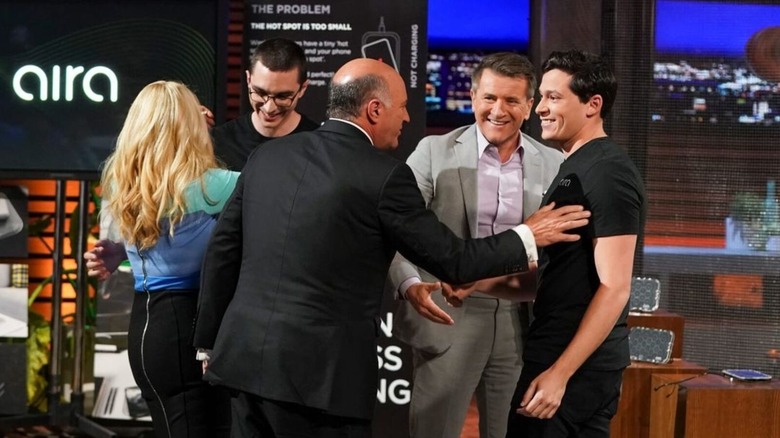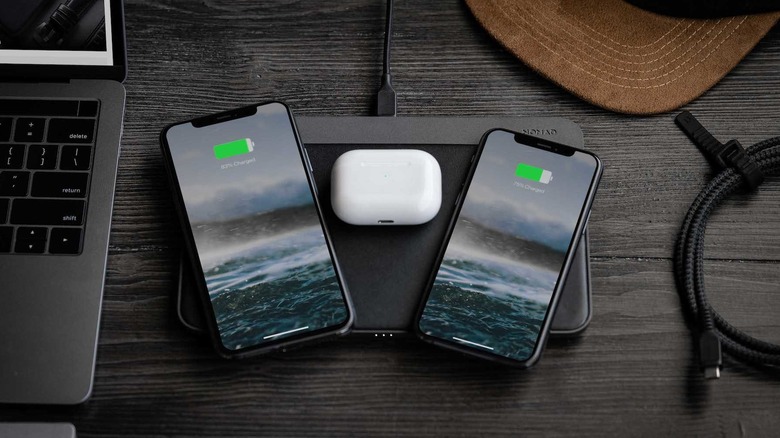What Happened To Aira From Shark Tank Season 11?
When Aira cofounders Eric Goodchild and Jake Slatnick appeared on ABC's Shark Tank in 2019, it was certainly one of the more memorable presentations to grace the popular show, where entrepreneurs seek investment capital and sometimes mentorship. That's because Eric holds a Guinness World Record for making the most powerful Bi-Polar Tesla Coil and demonstrated a smaller version during the duo's pitch. Standing as tall as a person, the homemade coil shot a fat arc of light and sound around a metal cage, both impressing and entertaining the sharks.
Aira's product was a wireless charging pad that differed from existing technology because it was large enough to charge several devices at one time, such as phones, tablets, earbuds, and more. Additionally, the charging pad incorporated an array of coils that aren't hyper-sensitive to device placement, an issue that plagues less advanced wireless chargers. This was essentially the same premise as Apple's AirPower except, you know, successful.
Businessman Mark Cuban was the first shark to decline the opportunity to invest, citing that charging pads in general may have a limited lifespan in favor of wireless chargers that operate via sound-based technology which doesn't require a physical pad. Clothing mogul Damon John echoed a similar sentiment and also passed on the deal, but Aira was able to secure an investment with the three remaining sharks, Lori Greiner, Robert Herjavec, and Kevin O'Leary.
The product was effective, but pricey
Although the Aira co-founders originally asked for a $500,000 investment in exchange for a 7% ownership stake, they eventually settled on $500,000 for a 15% share, reasoning that the influence and input of three different sharks were worth ceding additional ownership. Now four years later, was investing in Aira a wise decision?
To begin, Aira was rebranded to the name FreePower shortly after the Shark Tank episode aired. In 2020, the company rolled out its first production wireless charger called the Base Station Pro in partnership with cell phone accessory purveyor Nomad. Although the functionality of the device was praised, critics felt that it was overpriced at $229, though the price was subsequently reduced.
The company was also prominently featured in the business media outlet Fast Company along with AMD, Samsung, and Apple on a list of 2021's most innovative companies. Also in 2021, FreePower revealed that private investors provided an additional $12 million in funding, including further contributions from sharks Lori Greiner and Robert Herjavec.
FreePower states that the seed capital will be used to develop version 2.0 of its charging technology, as well as diversifying away from standalone charging pads. For example, the company is exploring alternate vessels for the technology such as furniture and automobiles. Some headway has already been made into the automotive world via a relationship with parts supplier Motherson.

